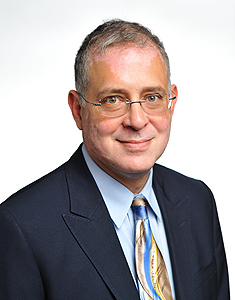
Jeremy Teitelbaum, dean of the College of Liberal Arts and Sciences, is a guest contributor to UConn Today. His posts appear on Mondays. For his previous posts, click here.
If there’s one habit of mind we expect our students to develop and our faculty to employ in the College of Liberal Arts and Sciences, it’s critical thinking.
Whatever the field of study, we push our students to analyze, apply logic, question assumptions, and avoid appeals to emotion or authority when problem-solving. And as products of a rigorous and extended liberal education, we on the faculty model this behavior and apply critical thinking in our own professional lives.
But, like the Force, critical thinking has its dark side.
It is all too easy to slip from a healthy skepticism into a state of total negativity. In this condition, the natural and reasonable objections that a rational person might level against any proposal in the real world multiply malignantly into a pattern of opposition to pretty much everything, but especially anything that smacks of a change from the status quo. In this state, one practices not critical thinking but its pathological form, overly critical thinking (OCT).
I must confess that I find myself susceptible to this condition. My many years of mathematical training and work as a research mathematician called upon me, as a professional requirement, to look askance at pretty much any claim – and the experience of publishing a theorem with a big gap in it (we fixed it later) only heightened my sense of caution. Unless I’m careful, the little logician in my head that objects to practically everything will take control, at which point I will certainly turn into President Quincy Adams Wagstaff of Huxley University, the quintessential sufferer from OCT.
I have to fight this. I could function with a mild case of OCT as long as I was a faculty member in mathematics, but if I’m going to be Dean, it just won’t work. There are too many decisions to make, and too little data to support those decisions, for me to give in. To take just one example, the University plans to hire about 290 faculty members over the next several years, but where, exactly, those people are supposed to go – where are the offices and labs – is pretty much totally up in the air right now. Talk about an opportunity for overly critical thinking!
The fact is, however, that we have an opportunity; we have to seize it; and somehow we’ll have to work out the inevitable complications and contradictions that will ensue. The key to the decision is the big picture – in this particular case, nothing is more important to the quality of this university than building the intellectual power of its faculty, so we need to do that and deal with the problems.
Easy to say, but scary. Maybe I should look into some kind of a support group or treatment program for sufferers from OCT. I can’t be the only one on campus with this problem, so if anyone out there can help me with appropriate resources, I’d appreciate it!


